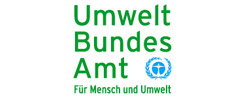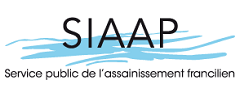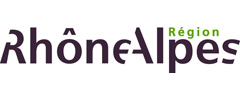Compendium to develop a Water and Sanitation Safety Plan in a Rural Community
2nd completely revised edition of the compendium is out and available in English, Romanian, Macedonian, Albanian and Bulgarian
28.02.2017

Mihaela Vasilescu, Natasa Dokovska, Bistra Mihaylova and Claudia Wendland presenting the revised Compendium
The WSSP Compendium aims to enable communities to develop a WSSP for small-scale water supplies, e.g. dug wells, boreholes, springs and piped centralised water supply systems, and as well as to assess the quality of sanitation facilities such as school toilets.
The second edition has been updated to actual frame conditions and two new modules have been added: First new module is one on flooding in Part B addressing the risk in many Southern European communities of floods and how to deal with it in WSSP. The second new module is “Personal hygiene for girls and boys” belonging to Part C, it gives guidance how to educate school children in sensitive area of hygiene. For girls especially the topic of menstrual hygiene management is a taboo in their lives and this module helps teachers to address this important and sensitive topic.
The second edition of the compendium has been prepared in the framework of the export initiative environmental technologies by the German Federal Ministry for the Environment, Nature Conservation, Building and Nuclear Safety.
It consists of three parts and is available in five different languages:
Part A: English, Macedonian, Romanian, Albanian and Bulgarian
Part B: English, Macedonian, Romanian, Albanian and Bulgarian
Part C: English, Macedonian, Romanian, Albanian and Bulgarian

Learn more about the contents of each part below:
Part A: How to accomplish a water and sanitation safety plan?
Part A, consists of 8 modules, explaining the approach of developing water and sanitation safety plans (WSSP) for small-scale water supplies, and provides basic and practical guidance for developing a WSSP. Two modules focus mainly on WSSP for non-piped water supplies and on small-scale piped distribution systems. Furthermore this part introduces the practical activities in 10 steps to be carried out by a WSSP team and leading to a local WSSP. Several forms for the practical activities, doing risk assessments of the water supply or toilets, doing interviews of different stakeholders and processing the collected information and results as well as examples are provided. The main target groups of part A are local authorities and water operators, but also teachers and NGOs.
Part B: Background information for developing WSSP
Part B, consists of 9 modules, providing technical and regulatory information on for example possible drinking water sources, water treatment and distribution, sanitation and wastewater treatment, water protection and water quality, management of storm water and water related regulations.
The main target groups of part B are persons who appreciate more background information on water and sanitation related issues. These can be local authorities and water operators, but also teachers, NGOs and interested citizens.
Part C: How to involve schools?
Part C, consists of 7 modules, and is an additional part, especially for youth and schools. It includes theoretical lessons on general water issues such as the water cycle, and also specific information on school sanitation, water and personal hygiene, including menstrual hygiene management for girls. The development of a WSSP is explained especially in terms of involving pupils and citizens. Exercises and suggestions for practical and interactive actions in combination with the tool box are detailed. Part C targets mainly teachers, but also youth group leaders, NGOs or local authorities.
----
Editors of the WSSP-compendium are Margriet Samwel and Claudia Wendland, WECF.
Authors of this compendium:
- Natasha Dokovska Spirovska, Journalists for Human Rights
- Hanna Gunnarsson, WECF
- Monica Isacu, Aquademica
- Diana Iskreva, Earth Forever
- Friedemann Klimek, WECF
- Bistra Mihaylova, WECF- Doris Möller, WECF
- Margriet Samwel, WECF
- Raluca Vaduva, WEE
- Claudia Wendland, WECF
- Aglika Yordanova, Ecoworld 2007

































